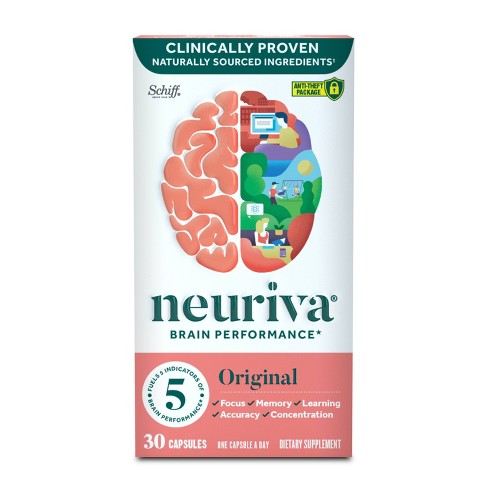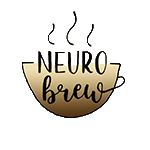The Truth Behind Cognitive Enhancers
“Breaking News: Novel Drug Enhances Brain Function.”
That headline popped up on my Facebook feed back in 2015. “Wow, have you heard of this?” I turned my phone to my friend. He looked at the screen and then up at me, his eyes slightly squinted. For just a moment, I think he was scanning my face to see whether or not I actually believed this nonsense. It’s safe to say that I was susceptible to this kind of science misinformation at the time like any of us can be without proper investigation. “I don’t think that’s real, Julie.” My cheeks flushed. I hadn’t even opened the link before assuming it might be factual.
It’s easy to fall prey to these types of clickbait, too good to be true headlines. Most of us spend no more than a minute or two scrolling through these articles before we’ve drawn conclusions and begun casually sharing them with friends and family. Little do we realize how dangerous these seemingly innocuous conversations and Facebook shares can be.
There are too many over-the-counter dietary supplement scams to count that drain your bank account by making spurious claims of real health benefits. Vitamins included, dietary supplements make up a $40 billion-dollar industry. “This pill will make you smarter!” or, “This supplement will improve your memory!” are not uncommon promises made in this industry. The reason these products are so prevalent is because they’re almost completely unchecked by the FDA. The FDA warns that “unscrupulous manufacturers have tried to sell bogus products that should not be on the market at all.” It’s an all too common practice.
That’s not to say that these supplements are harmful by any means, but they’re not all that helpful, either. In fact, the vast majority of us don’t even need to take vitamins unless medically advised. The worst part is, these companies are savvy and know exactly what they’re doing. Bombastic language and science jargon are used to convince consumers, with minimal effort, that their product is the real deal. And if you don’t understand the language someone is using, you stand no chance of thinking critically about it – that’s exactly what this industry thrives off of.
Neuriva Brain Booster Debunked
You may have seen on the news recently that Neuriva, a brain supplement sold for $44.99 per bottle, was sued for mendaciously claiming that their product is “scientifically backed and clinically proven” to improve brain performance. They promise increased focus, memory, learning, accuracy, and concentration. Is there any truth to it? We’ll have to take a look at the main ingredients that are allegedly responsible for the brain enhancement.

Neuriva is a dietary supplement sold by Schiff that claims to boost brain performance using natural ingredients. Image source found here.
Schiff Vitamins, the company behind Neuriva, advertises that its two key ingredients, coffee cherry extract and phosphatidylserine, are proven to improve brain functioning. Coffee cherry extract is found in the fruit that bears coffee beans and has long been recognized as an antioxidant. However, there are few studies on the effects of coffee cherry extract in the brain. The study the company references found elevated levels of brain-derived neurotrophic factor (BDNF), which is a protein that supports brain cells and has been linked to learning and memory.
Miracle Drug or Caffeine Equivalent?
One of the biggest issues with this finding is that it comes from a single, isolated clinical trial with only eight participants. Additionally, an increase in BDNF does not translate to an increase in brain functioning. According to Dr. Gary L. Wenk, Ph.D. Emeritus Professor of Psychology and Neuroscience at the Ohio State University, “The authors conclude that an acute dose of coffee extract was ‘supporting of faster reaction times and increased, sustain attention.’ That is exactly what you might expect from a cup of coffee. So no, it does nothing special. They are charging a lot of money for a bit of coffee.”
The journal that published this paper isn’t too reliable, either. “The journal is considered a predatory journal because they charge a lot to publish and will publish almost anything,” Wenk explains. Therefore, when it comes to coffee cherry extract, there’s just not enough research on the topic to make any reliable claims, and the consensus is that the current research is inadequate and unconvincing.
As for phosphatidylserine, it is merely a lipid that’s often included in over-the-counter cognitive enhancers because it’s cheap and harmless. Having conducted a number of the studies involved in the extensive research done on this molecule in Alzheimer’s patients and animal models in the 1980s, Wenk concludes that phosphatidylserine “failed to offer any benefit to rats or humans.”
Unsurprisingly, countless disappointed Neuriva customers complained that the supplement was futile and did not live up to its promises. A class action lawsuit was filed earlier this year and Neuriva’s false advertising was exposed. Neuriva is still being sold, but the company must remove all “scientifically backed” and “clinically proven” verbiage from their marketing and labels.
So, the question remains: do any of these supplements actually work? Are there any efficacious brain-enhancing pills out there?
The Quest for Brain Enhancement
Sadly, the answer is no. “An effective brain enhancing pill does not exist,” Wenk shares. “Pharmaceutical companies and scientists have been trying to find a chemical or some blend of drugs that can enhance normal brain function or slow down the aging process. Thus far, no one has been able to design a therapy that can make a person truly smarter or slow brain aging.”
There are, however, measures that can decrease your risk of developing degenerative brain diseases. Copious studies have found that socialization, physical activity, and diet can slow cognitive decline, but it seems that diet is the best way to maintain your brain health. Scientists have also identified a number of factors known to advance cognitive decline, such as alcohol and sleep deprivation, so moderating your alcohol intake and getting enough sleep each night will lower your risk of dementia and related conditions.
There’s nothing wrong with wanting to believe in a miracle cure – that’s human. It’s completely natural to search for something, anything that will make us live longer or become more intelligent. But, if it sounds too good to be true, it usually is. While it’s impossible to know exactly what the future holds, for now, save your money and follow your mom’s advice: eat your vegetables!
